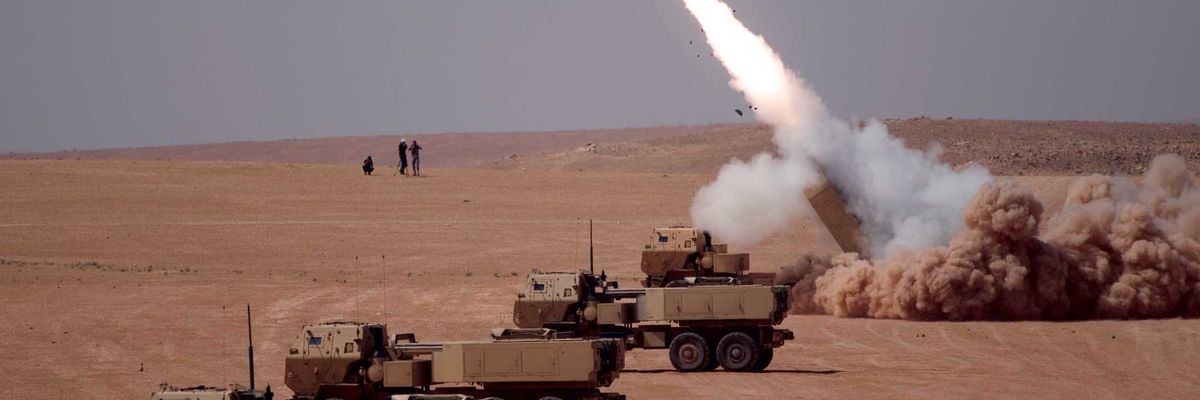Several of America’s largest defense companies reported record jumps in new contracts this week as the war in Ukraine continues to stoke a massive increase in demand for weapons.
Lockheed Martin CEO Jim Taiclet told investors in a Wednesday earnings call that his company’s backlog of weapons contracts grew to $150 billion from $135 billion in 2021, a jump that was “driven by all-time record orders.” Lockheed produces multiple weapons that have been in high demand since Russia’s brutal invasion, including Javelin missiles and High Mobility Artillery Rocket Systems (HIMARS).
General Dynamics, which makes Abrams tanks and Stryker armored vehicles, announced that its backlog of contracts reached an “all-time high” of $91.1 billion, a four percent increase from 2021. Raytheon Technologies’ missile and defense sector earned a “record backlog” of $34 billion in 2022, and Raytheon’s total defense backlog hit $70 billion in the fourth quarter, a 10 percent jump from last year.
“Our products and technologies have been instrumental in helping the people of Ukraine defend itself,” argued Raytheon CEO Greg Hayes in a Tuesday earnings call. Chris Calio — Raytheon’s chief operating officer — noted later in the call that “our backlog is expected to continue to grow, given the heightened and increasingly complex threat environment.”
The boost in new contracts comes in part from orders to refill the stockpiles of the United States and its NATO allies, which have contributed tens of billions of dollars worth of weapons to Ukraine since last year. Hayes said Wednesday that only $6 billion of replenishment contracts have been doled out so far, a number that will likely grow next year given that Congress has allocated over $30 billion for efforts to arm Ukraine and rebuild U.S. stockpiles.
And, as the Washington Post editorial board recently noted, the Pentagon’s latest budget will “do far more than replenish U.S. stockpiles.”
“It lays the foundation for a vastly revitalized defense industrial base — and does so with one eye on the People’s Republic of China,” the Post wrote.
Notably, the three companies, which largely rely on taxpayer-funded government contracts, also boasted large stock dividends and buybacks in 2022. In total, the contractors gave $19.6 billion to shareholders, with Lockheed alone spending $11 billion, as Eli Clifton reported Wednesday in RS.














